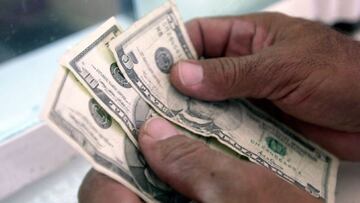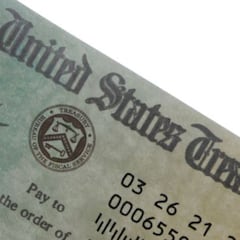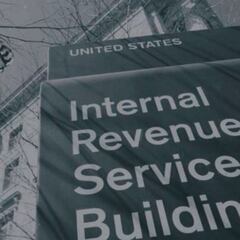What ID can I use to cash stimulus checks?
If you want to cash your stimulus check you can do so at banks even where you are not an account holder or member, but you will need to bring ID.

In March 2021, the US Congress passed the American Rescue Plan that included a third stimulus check of $1,400. Checks went out to single Americans who in 2019 or 2020 made $75,000 or less, those who filed as a Head of Household who made $112,500 or less, and married couples who filed their taxes jointly who brought home $150,000 or less.
The payments were issued through various methods, including direct deposit, physical checks, and prepaid visa debit cards. While millions did receive their stimulus paymetns through direct deposit, questions have arisen on how to cash physical checks or transfer funds from the prepaid debit cards, officially known as Economic Impact Payment (EIP) Cards, to their personal bank accounts.
Where can I cash my stimulus check? And what ID will I need?
According to the FDIC (Federal Deposit Insurance Corporation), banks are encouraged to support those looking to cash stimulus checks even if a person is not a member of that bank. Be careful though, some people looking to cash checks at a bank where they do not have an account have had to pay fees ranging between five and 20 dollars. One work around may be to set up an account at the time you are cashing the check, it’s always worth asking what your options are before starting the process.
When going to a bank to cash your stimulus check, whether you are a member or not, it is important to bring photo ID for the bank to prevent people from cashing checks that were not issued to them. Some banks may require two sets of identification, a good recommendation is to call the branch you aim to visit to check their requirements.
As to what ID would be acceptable to a bank, these should be any officially-issued identification with a photo: undamaged US passport, driver’s license, military ID, certificate of naturalization, certificate of citizenship, government employee ID (city, county, state or federal), or other equivalent.
- Where can I cash my payment?
- Fourth stimulus check: what has Biden said and proposed?
- Third stimulus check: who is getting extra money, why and how much?
- Would the fourth stimulus check be taxed by the IRS?
Are there ID requirements to use the Economic Impact Payment Cards?
To activate the card, recipients will be asked to provide the last six digits of their social security number. After providing this information, users will be prompted to create a four-digit pin which will be entered when making a transaction either at a physical store or online. Similar to debit cards issued by banks and other financial institutions, providing this pin will prevent fraud. The IRS has stated that those choosing to use the EIP cards at any location that accepts Visa Debit Cards, both online or in-store. Additionally, those who receive a card will be given instructions on how to take advantage of the online portal that tracks transactions made and will let cardholders know the balance remaining on their account.
Can the funds on the EIP card be transferred to a personal bank account?
Yes. Along with the EIP cards, recipients will receive instructions on how to transfer the balance to their bank account. To transfer the card’s balance into a personal bank account, the IRS instructs recipients to activate the card and create a User ID and password on the Money Network portal. Once logged into the portal, users will be asked to identify the bank account where they would like the funds to be sent, and after confirming the transaction, the funds should arrive in 2-3 business days. Recipients who would rather make the transfer over the phone can do so by calling 1-(800)-240-8100 after the card has been activated.
Can the funds on the EIP card be withdrawn at an ATM?
Related stories
Yes, the funds can be withdrawn from an ATM. For cardholders who are interested in using an ATM to withdraw the balance on the card, the IRS has set up an ATM locator with locations listed that will not charge fees for this type of transaction.
There is a also a detailed FAQ relating to the EIP cards.

